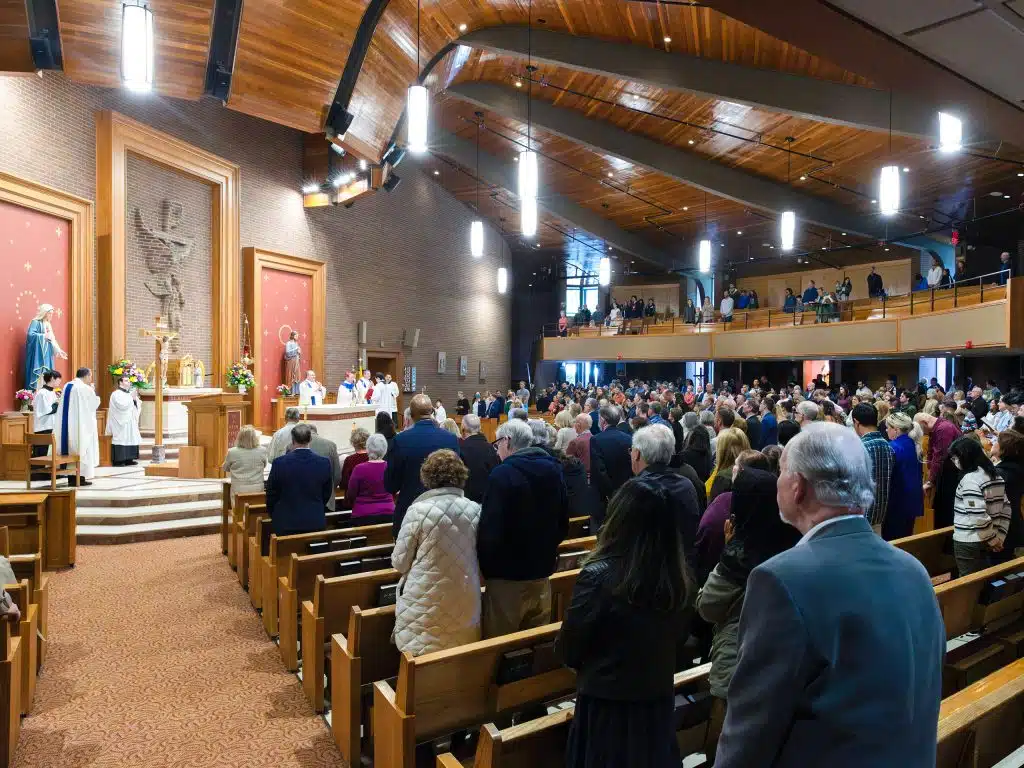And now, for something completely different. I’d like, for a moment, to discuss university politics. Specifically, I’d like to discuss the program that changed my life. And I’d like to tell you why its existence is now threatened. The program is the St. Ignatius Institute (SII) at the University of San Francisco (USF). When I first came to the Institute in 1983, I was a 20-year-old “nice Catholic kid” whose idea of living a holy life was avoiding mortal sin and attending Sunday Mass. I had been attending a state school, and it left me feeling very spiritually hungry. I went to USF looking to fill that hunger. I found what I was looking for. And so much more. The St. Ignatius Institute was a Catholic Great Books program. Its founders had the ingenious idea of taking all of the general education requirements of the university, and building them into an integrated, 10-credit-hours-a-semester Great Books curriculum. The first semester, we studied the Old Testament, Ancient Greek Literature and Aristotelian logic, reading original texts from the period. As the years went on, we moved through history that way, studying one historical era at a time – examining it through studying its literature, history, philosophy and theology. And, because the program took the place of our general education units, we had the rest of our course load free to pursue any major offered by the university. But the Institute was more than an academic program. We lived in community, along with other USF students, in the residence halls. We went on retreats. We spent time, outside of class, with the faculty. Many of us attended Mass together every evening. Most important, we formed deep, lasting friendships. Many of my best, most treasured friends today are friends I met in the St. Ignatius Institute. The St. Ignatius Institute changed my life in many ways. It taught me to think. It rooted my spiritual life. It gave me the best friends I could ever ask for. But there was another, more concrete impact. In my senior year, the Institute sponsored a speaker series on chastity. That series absolutely enthralled me, and inspired me to begin speaking on the subject myself. But the Institute’s role in the genesis of my ministry didn’t stop there. John Galten, then the associate director of the Institute, saw my interest and gave me $100 to buy books on chastity, pointing me toward titles he knew to be particularly helpful. If it weren’t for that speaker series and Mr. Galten’s subsequent encouragement, I’d probably be a corporate consultant today instead of inspiring kids to live chastity. And now the threat. Relations between the institute and the university have been strained for years. USF, like many Catholic schools, is slowly but surely slipping into educational and cultural secularism. The Catholic identity of the university is becoming more and more symbolic, less and less tangible. And the presence of a solidly, faithfully Catholic program on campus seemed to serve as a very uncomfortable reminder of that secular slide. Many seemed to resent the institute’s presence, but the program attracted students – and money – to the university. Recognized nationally and internationally for its academic excellence, the program proved difficult for university administrators to toy with. Until now. Enter Stephen Privett, S.J., the university’s new president. After only five months at the helm, he has attacked the St. Ignatius Institute with a very large hatchet. On Jan. 19, he suddenly — without warning — fired institute director John Galten, who has been with the program since its inception 25 years ago, along with his associate director John Hamlon. In a letter to institute alumni, Father Privett assured us that in firing the entire administration, his real intent was to strengthen the program, which he somehow plans to accomplish by folding the SII into a little-known Catholic Studies program which has apparently emerged on the campus. The SII faculty, however, see the situation differently. On the day of the firings, six faculty members submitted a letter to the university administration. Noting the administration’s attitude of ” . . . that liberality which can abide all things but orthodoxy,” they made clear their understanding that the university’s action “signals clearly that the university administration plans to alter fundamentally the character of the institute.” As a group, they announced their refusal, after the current semester, to teach in the re-modeled institute or its surrogates. They see the writing on the wall. And so a good, strong, thriving program has, for all intents and purposes, died – the victim of university and ecclesial politics. It makes me very, very sad. The St. Ignatius Institute changed my life, and the lives of hundreds of other young Catholics. Who knows how many more generations this wonderful program could have touched? We’ll never know. But I want to publicly acknowledge the contribution that the St. Ignatius Institute made to my life, and to my ministry. To founders John Galten and Joseph Fessio, SJ; to professors C.M. Buckley, SJ; Dr. Stan Arroyabe; Dr. Erasmo Leiva; Dr. Raymond Dennehy; Mr. John Hamlon and Fr. Tony Mastroeni — as well as the late Drs. Frank Beech and Theresa Crem; and the late Frs. Francis King, SJ and John Richardson, SJ: You all had a profound impact on my life, and on my ministry. You taught me how to think, to question, to seek and to believe. You have, by extension, touched the thousands of lives I have consequently reached in my own ministry. The fruits of your work stretch far and wide, through me and through the hundreds of other institute alumni out there in the world. God will surely reward you for that. For more information on the fate of the St. Ignatius Institute, see the Friends of the St. Ignatius Institute web site at www.FriendsofSII.com.
Copyright ?2001 Arlington Catholic Herald. All rights reserved.


